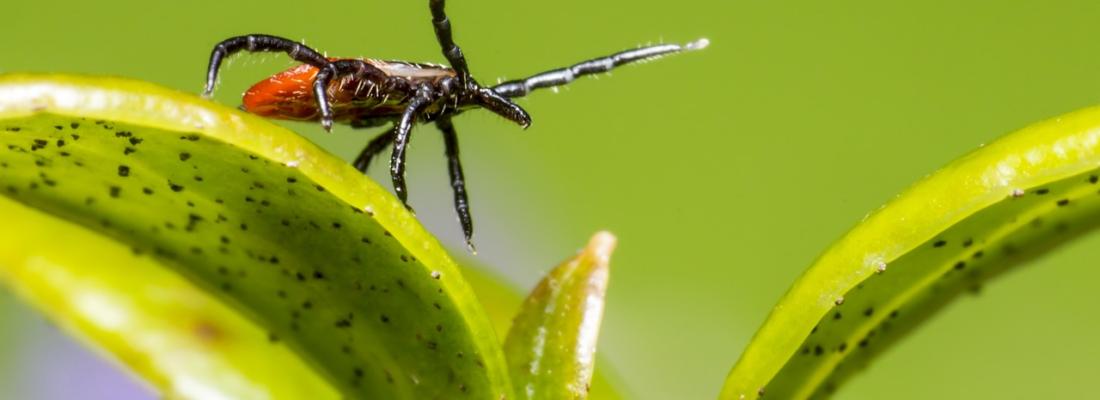Food, Global Health Reading time 3 min
Lyme disease: an innovative vaccine strategy to reduce risks caused by ticks
Published on 24 July 2023

Lyme disease is caused the bacteria Borrelia that is carried and transmitted by ticks, notably Ixodes ricinus in Europe and Ixodes scapularis in the United States and Canada. Despite extensive research, as yet there is no vaccine commercially available to prevent the disease. That is why researchers from INRAE, working in partnership with ANSES and the National Veterinary School of Alfort, developed a new kind of vaccine against Lyme disease that works indirectly by targeting ticks.
The idea was to make use of a vaccine that disrupts the tick microbiota.1 For their experiments, researchers injected mice with the vaccine containing a bacteria species found in the tick microbiota.
Once injected, the benign bacteria2 induces the production of antibodies by the mouse. If the mouse is then bitten by a tick, the antibodies interact and modify the tick microbiota, acting as a kind of Trojan horse.
A study of the ticks after feeding on the animal found that those ticks that had bitten vaccinated animals carried much less Borrelia than the ticks that had bitten non-vaccinated animals. The vaccine, when administered to a mouse, “protects” the tick against colonisation by Borrelia, and could also potentially protect the mouse against Lyme disease.
This research led to two important findings: a new understanding of the importance of tick microbiota in Borrelia infection, and a potential strategy for an innovative vaccine. The findings also confirmed that the microbiota is a key element for Borrelia development in ticks. This important data may lead to the development of an innovative vaccine strategy that aims to disrupt the microbiota for the vector of Lyme disease.
1 Borrelia bacteria lives in tick microbiota.
2 A benign strain of Escherichia coli was used for the experiment. While many strains of E. coli exist, only certain strains are harmful.
An issue worldwide
Ticks are not the only vector for diseases. Among others, mosquitos are the vector for a large number of diseases including dengue fever, zika and malaria. Control of these vectors, and protection against them and the diseases they cause, is therefore a major public health issue worldwide. There are no vaccines to protect against any of these diseases; currently available treatments can only alleviate symptoms or provide a cure after infection has occurred. Anti-microbiota vaccines offer an opportunity to develop innovative vaccines against vector-borne diseases.
Wu-Chuang A., Mateos-Hernandez L., Maitre A. et al. (2023). Microbiota perturbation by anti-microbiota vaccine reduces the colonization of Borrelia afzelii in Ixodes ricinus. Microbiome. DOI : 10.1186/s40168-023-01599-7
